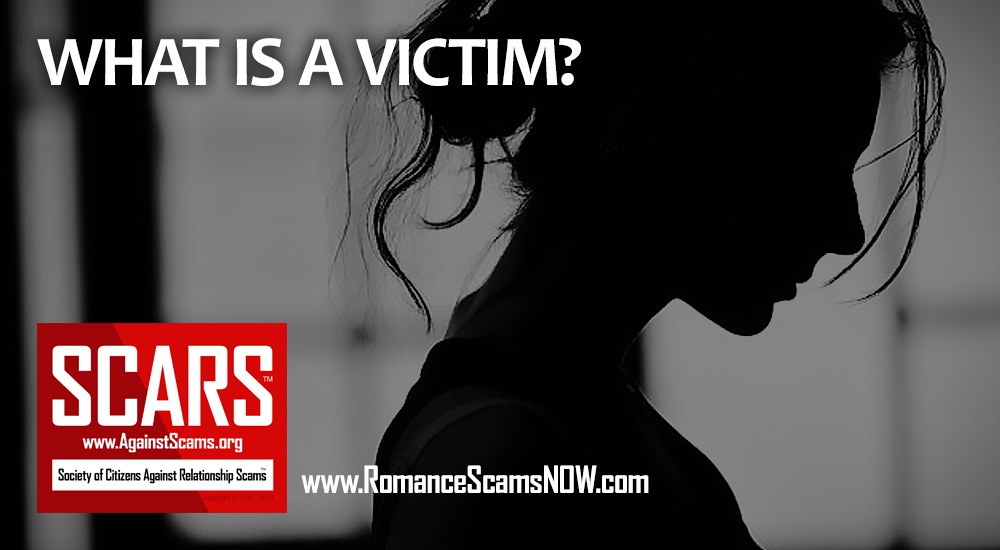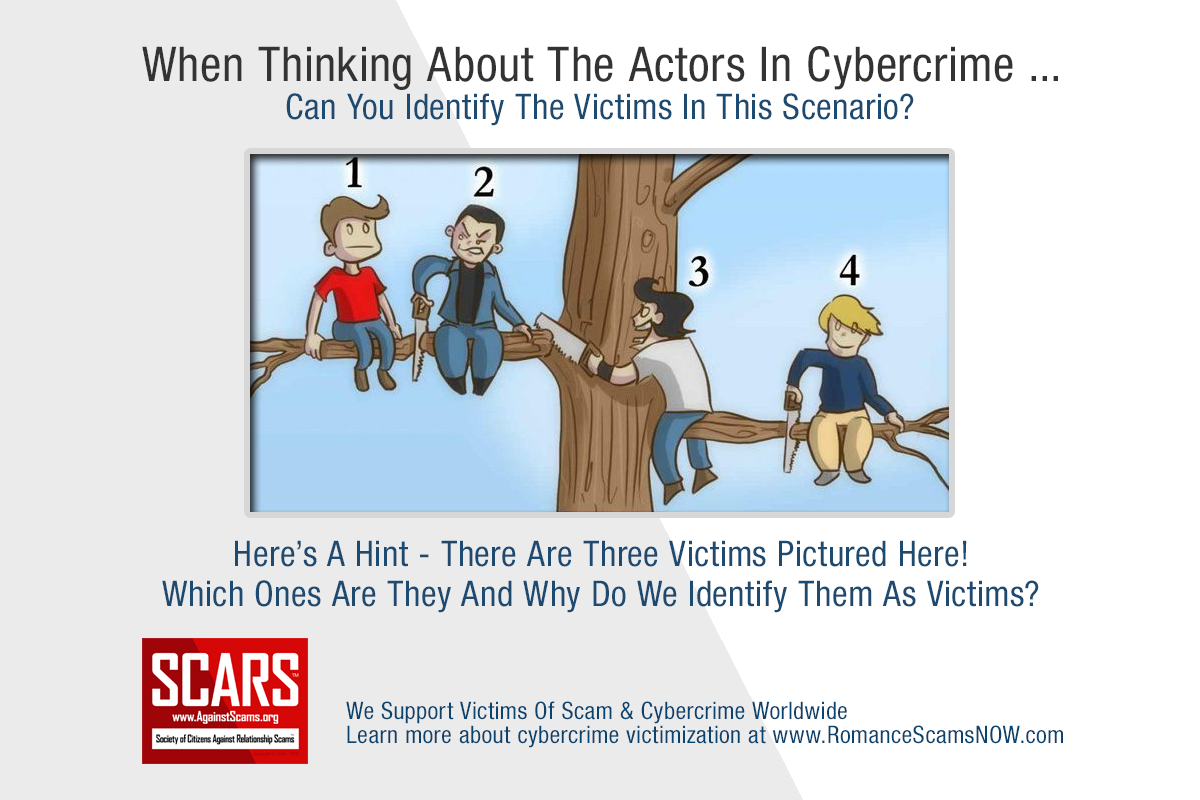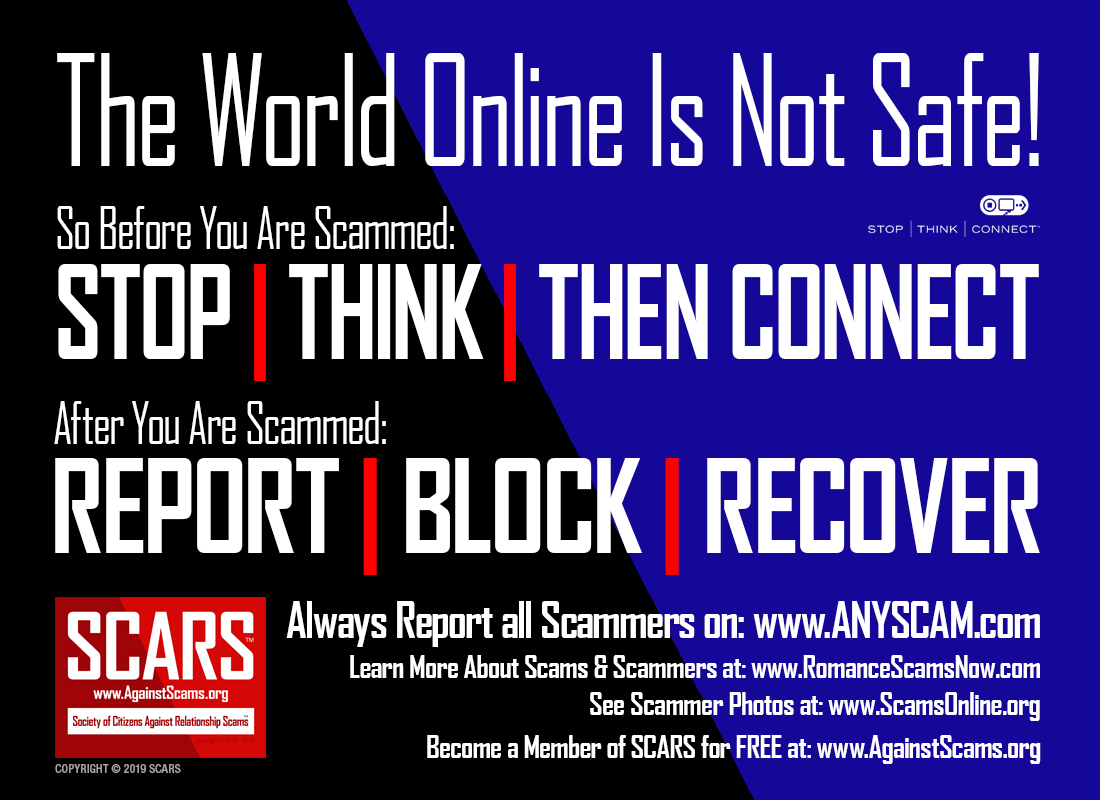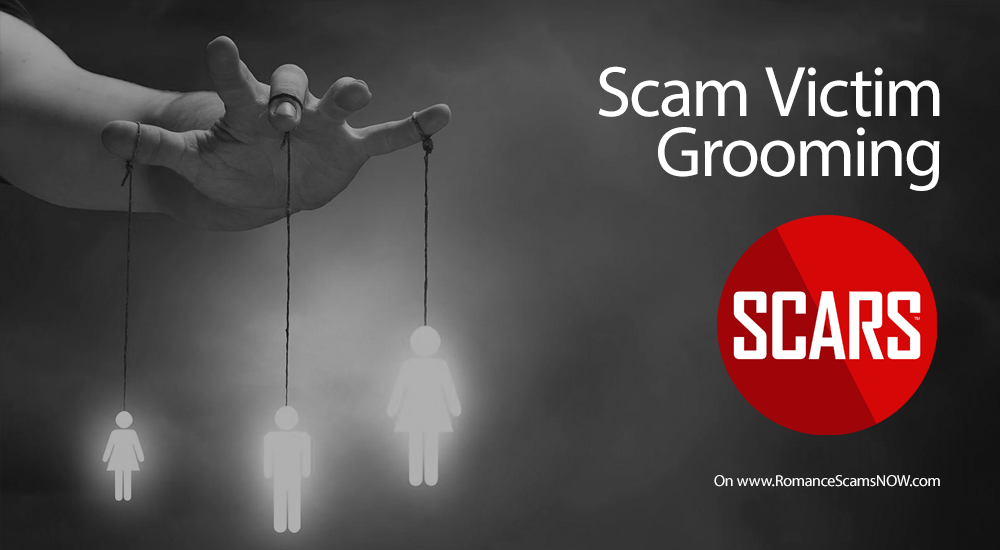SCARS™ Insight: Can You Correctly Identify A Victim?
What Is A Victim?
vic·tim
/ˈviktəm/The word is a noun, meaning:
a person harmed, injured, or killed as a result of a crime, accident, or other event or action.
or a person who is tricked or duped.
Who Is A Victim Of Crime – The Legal Definition From The U.S. Department of Justice
Definition of a victim:
A victim is defined as a person who has suffered physical or emotional harm, property damage, or economic loss as a result of a crime.
The Simplicity Of The Term
This is a surprisingly simple term and definition, yet it has historically been incredibly hard to agree upon who are victims. To this day, people want to claim victimhood status when they victimized themselves or believe that something that happened to ancestors caused their victimization. And the public, corporations, and the government many times wants to deny victim status to real victims. Social media is full of instances of victim deniers who are trolls and haters.
A victim is someone who has been affected personally in the present time directly to them.
Even someone that attempts suicide is a victim!
Why Does This Matter?
This matters because far to often Victims are blamed for their own Victimization.
Look back at the historical context and you will see countless modern examples of inappropriate denial of victim status:
- Victims of rape were frequently blamed for being participants and not victims
- Victims of domestic abuse are often said to want the relationship with their abuser
- Romance scam victims are said to have voluntarily sent the money
- Scam victims in a corporate context are said to be negligent & responsible
- Assault victims are told they were at fault for being in the wrong place at the wrong time
- Even Pedophiles try to blame the children for encouraging them, and many times a parent agrees
Yet we know – finally – that these (and many others) are not true. This is ignorance, anger, and fear speaking. We know this don’t we?
Simply Put
A person is a victim if harm was done to them or through them to another without their consent or their knowledge.
There May Be Things We Can Be Critical About In Victims
We may be able to be critical of victims’ behavior before or after the victimization. After all, victims are human and make mistakes, or act on their emotions. Some of this is understandable, some less so. But it does not – in any way – change the fact that they are a victim and deserving of our compassion and understanding.
Some victims can be extraordinarily hard to help due to trauma or other personality disorders. In those cases, they should be referred to the appropriate professionals.
There are even cases where a victim may support or aid the criminal that made them a victim. There are countless examples of this. They can still be under the influence of manipulation, suffering a mental disorder induced by trauma, or similar causes. But again, this does not change the fact that they are still victims. We may not be able to excuse all victims’ behavior, but we need to recognize it for what it is.
Victim Dignity
Every victim is deserving of their dignity.
One of the reasons for this alone is that almost everyone will, at some point in their lives, become a victim of something.
It is the position of the Society of Citizens Against Relationship Scams Inc. that all victims have The Right to be Treated with Fairness, Dignity, and Respect.
To learn more about our position on Victims’ Dignity click here: https://againstscams.org/scars-declaration-for-victims-dignity/
Now That You Have Larned …
Can you identify the victims in this infographic?
One Last Topic
It can be incredibly hard to help other people, including victims.
We experience this all the time. We do our best to help people at the worst times of their lives (in many cases). We try to help people trapped in their rage or anger. We try to help people in total denial and there is no way to get through to them.
People who understand and try to help victims are human too, and we experience their pain vicariously. It impacts us, causes us frustration, and it is hard not to throw it back. But that is why we are professionals. For the rest of society, it is important to understand that a victim’s pain and trauma will affect you. You have to understand and deal with this within yourself.
Many times victimization can affect individuals and organizations at the same time. For example: when a family member is victimized it affects the entire family; or when a crime occurs in a company, it affects the victims but the entire company also is a victim and it is essential for the company not to take it out on the individual employee.
Supporting victims of crime has been a long time coming, and still to this day is poorly practiced professionally. There are countless traumatized victims, charlatans and fakes and amateurs, and even criminals masquerading as victims’ support entities. It is important to understand this when referring victims to appropriate support.
SCARS is a professional victims’ assistance organization, but like all nonprofits, we do what we can. If you would like to help us do more, please donate at www.AgainstScams.org
Remember to be kind to all victims!
TAGS: SCARS, Important Article, Information About Scams, Anti-Scam, Scams, Scammers, Fraudsters, Cybercrime, Crybercriminals, Romance Scams, Scam Victims, Victims’ Dignity, Victims’ Rights, Definition of Victim. What is a Victim
SCARS™ Team
Society of Citizens Against Relationship Scams Inc.
A Worldwide Crime Victims Assistance Nonprofit Organization
Visit: www.AgainstScams.org
Contact Us: Contact@AgainstScams.org
PLEASE SHARE OUR ARTICLES WITH YOUR FRIENDS & FAMILY
HELP OTHERS STAY SAFE ONLINE – YOUR KNOWLEDGE CAN MAKE THE DIFFERENCE!
The Latest SCARS Posts:
FIND MORE SCAM NEWS
«SCAMCRIME.COM»
JOIN US ON FACEBOOK
«CLICK HERE»
END
MORE INFORMATION
– – –
Tell us about your experiences with Romance Scammers in our
« Scams Discussion Forum on Facebook »
– – –
FAQ: How Do You Properly Report Scammers?
It is essential that law enforcement knows about scams & scammers, even though there is nothing (in most cases) that they can do.
Always report scams involving money lost or where you received money to:
- Local Police – ask them to take an “informational” police report – say you need it for your insurance
- U.S. State Police (if you live in the U.S.) – they will take the matter more seriously and provide you with more help than local police
- Your National Police or FBI « www.IC3.gov »
- The SCARS|CDN™ Cybercriminal Data Network – Worldwide Reporting Network on « www.Anyscam.com »
This helps your government understand the problem, and allows law enforcement to add scammers on watch lists worldwide.
– – –
To learn more about SCARS visit « www.AgainstScams.org »
Please be sure to report all scammers
on « www.Anyscam.com »
Disclaimer:
SCARS IS A DIGITAL PUBLISHER AND DOES NOT OFFER HEALTH OR MEDICAL ADVICE, LEGAL ADVICE, FINANCIAL ADVICE, OR SERVICES THAT SCARS IS NOT LICENSED OR REGISTERED TO PERFORM.
IF YOU’RE FACING A MEDICAL EMERGENCY, CALL YOUR LOCAL EMERGENCY SERVICES IMMEDIATELY, OR VISIT THE NEAREST EMERGENCY ROOM OR URGENT CARE CENTER. YOU SHOULD CONSULT YOUR HEALTHCARE PROVIDER BEFORE FOLLOWING ANY MEDICALLY RELATED INFORMATION PRESENTED ON OUR PAGES.
ALWAYS CONSULT A LICENSED ATTORNEY FOR ANY ADVICE REGARDING LEGAL MATTERS.
A LICENSED FINANCIAL OR TAX PROFESSIONAL SHOULD BE CONSULTED BEFORE ACTING ON ANY INFORMATION RELATING TO YOUR PERSONAL FINANCES OR TAX RELATED ISSUES AND INFORMATION.
This content and other material contained on the website, apps, newsletter, and products (“Content”), is general in nature and for informational purposes only and does not constitute medical, legal, or financial advice; the Content is not intended to be a substitute for licensed or regulated professional advice. Always consult your doctor or other qualified healthcare provider, lawyer, financial, or tax professional with any questions you may have regarding the educational information contained herein. SCARS makes no guarantees about the efficacy of information described on or in SCARS’ Content. The information contained is subject to change and is not intended to cover all possible situations or effects. SCARS does not recommend or endorse any specific professional or care provider, product, service, or other information that may be mentioned in SCARS’ websites, apps, and Content unless explicitly identified as such.
The disclaimers herein are provided on this page for ease of reference. These disclaimers supplement and are a part of SCARS’ website’s Terms of Use.
Legal Notices:
All original content is Copyright © 1991 – 2020 Society of Citizens Against Relationship Scams Inc. (D.B.A SCARS) All Rights Reserved Worldwide & Webwide. Third-party copyrights acknowledge.
SCARS, SCARS|INTERNATIONAL, SCARS, SCARS|SUPPORT, SCARS, RSN, Romance Scams Now, SCARS|INTERNATION, SCARS|WORLDWIDE, SCARS|GLOBAL, SCARS, Society of Citizens Against Relationship Scams, Society of Citizens Against Romance Scams, SCARS|ANYSCAM, Project Anyscam, Anyscam, SCARS|GOFCH, GOFCH, SCARS|CHINA, SCARS|CDN, SCARS|UK, SCARS|LATINOAMERICA, SCARS|MEMBER, SCARS|VOLUNTEER, SCARS Cybercriminal Data Network, Cobalt Alert, Scam Victims Support Group, are all trademarks of Society of Citizens Against Relationship Scams Inc., All Rights Reserved Worldwide
Contact the law firm for the Society of Citizens Against Relationship Scams Incorporated by email at legal@AgainstScams.org












Please Leave A Comment - Tell Us What You Think About This!